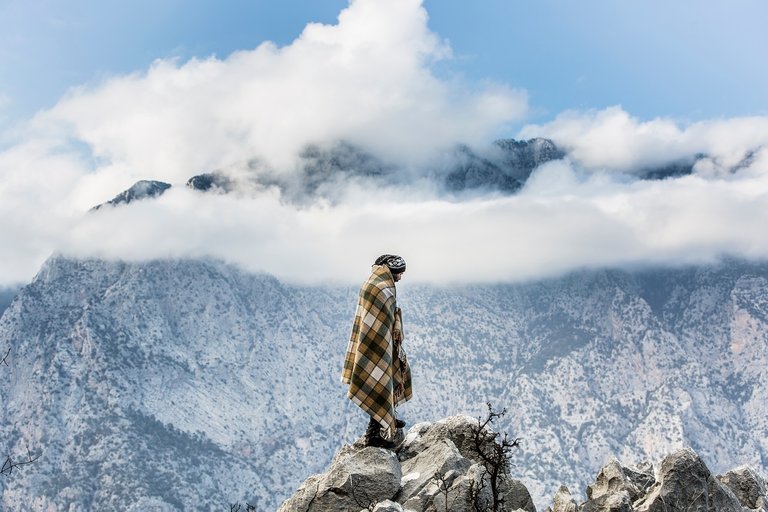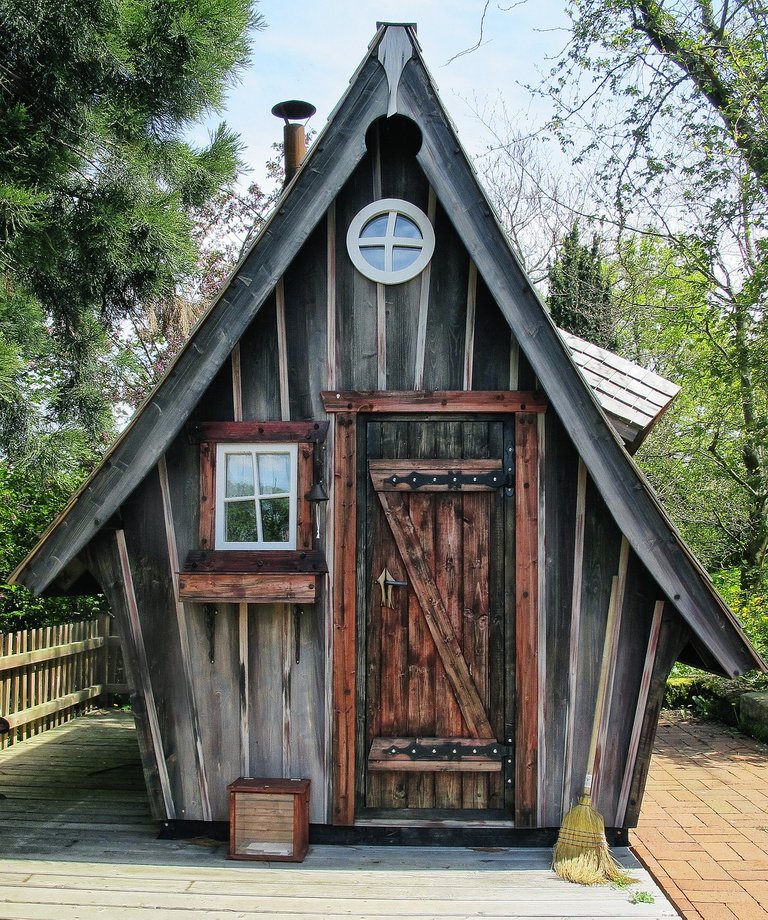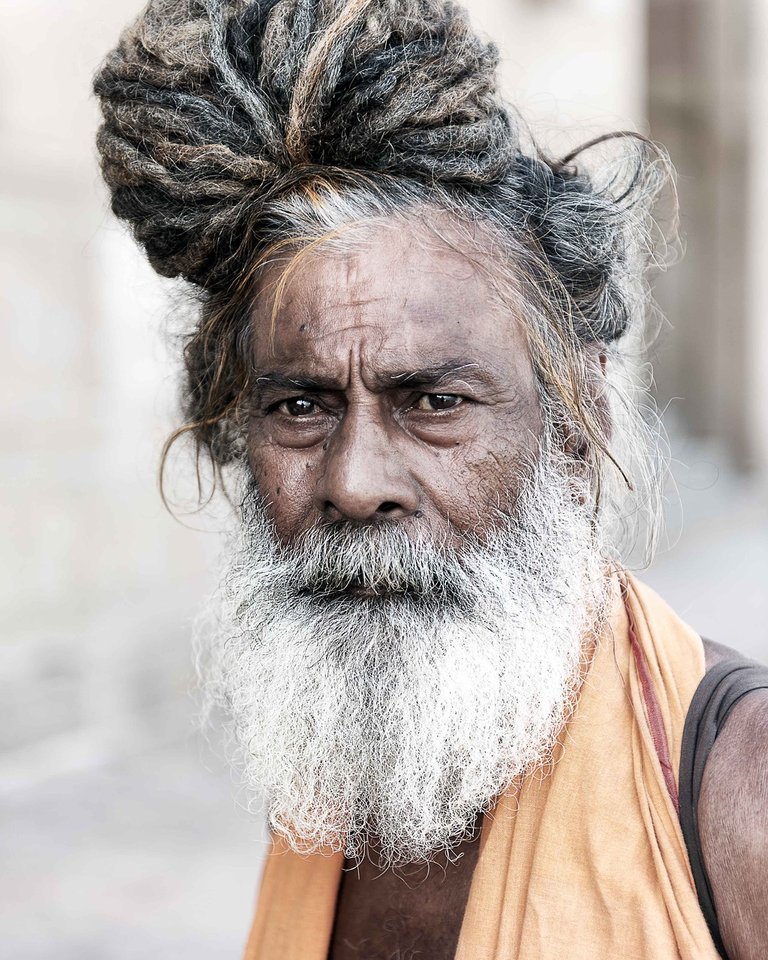
Walking out of the subway recently, I saw a street person pointing at the sky and raving madly. In her mind, there was something up there (which no one else saw) and she was reacting to it. She had unkempt hair, soiled clothes, and carried a bag that may have contained all of her earthly possessions. Homeless? Probably so. Drugs? I doubt she had the money. Mentally ill by society’s standards? Quite likely.
But who am I to conclude that her visions (angels, demons, or otherwise) were any less important than those of Joan of Arc, St. Jerome, or St. Catherine of Sienna? Muhammed, Jesus Christ, and Gautama Buddha all were mystics and outliers. If any one of them lived today, plenty of people would consider him crazy.

Throughout history, some people living on the edge have been called crazy, while others are celebrated as saints. Society’s attitudes have varied depending on the historical period and its culture. The fact that certain mystics have been used for political, military, or organized religious purposes probably has helped their particular causes as well. And with our growing understanding of mental illness, it’s tempting to question some of the visions people have had in the past.
But that doesn’t mean it is all B.S. If there is truth in the world, then someone who retreats from the noise and distraction of society may be more likely to discover life’s meaning than those of us who are so occupied with daily living.
From here on, I’ll focus this discussion on hermits rather than mystics (though there is some overlap). I cannot judge mystics for the reasons I mentioned. It’s difficult to evaluate someone else’s direct experiences with visions that tread the line between brilliance and something which is happening within their minds.

With our modern knowledge and revisionist hindsight, some of history’s best known mystics have displayed classic signs of epilepsy, for example. That’s not to say their visions are any less holy; perhaps they have been put in a position to experience special things the rest of us cannot. But it clouds my ability to evaluate their truth.
Similarly, I would discount some hermits as people who have withdrawn from the world simply because they can’t handle it. Avoiding or running from something does not give you a free pass. You’ll never achieve some higher mental plateau if you do not take on life’s challenges directly and learn from that journey, then going full-on monk after that if it’s your path. And for this discussion, I’ll also subtract those like Joan of Arc and Clare of Assisi, since I don’t think either of them truly lived on their own for any extended period (not to say they weren’t amazing people, which they were). Others, like St. Jerome and Julian of Norwich, may have had times when they isolated themselves, but probably are better known as theologians.

Despite me being hard on those groups of people, I think hermits can be very wise and that we can learn from them. At some level, I’m jealous of a person who can unplug from the world, tune out the noise of living, and spend that time and energy distilling a few kernels of truth from life itself. Those insights could come in the form of something spiritual, philosophical, or even a better understanding of our practical world.
Am I likely to have an epiphany while I’m cooking dinner for my kids, typing on my computer or taking a bath? It’s much more likely that someone living a simple, monastic life would be able to explore life’s depths, both inside and outside of one’s own mind.
Let’s explore hermits through the ages. I’m convinced that some of these people learned a lot about themselves and the world around them, enough that they could share important insights with us (whether you happen to be a religious person or not). Others may have been charismatic phonies or their stories may have been played up to suit someone’s political needs.

No discussion of hermits can ignore the sadhus and monks of Hinduism and Buddhism. In those traditions, turning ascetic can be part of an advanced stage in one’s spiritual journey. And so it’s not just a few dozen people who decide to become monastic. Go to any of the countries in these religions’ sphere of influence and you’ll see thousands upon thousands of such seekers. Some have gone full-on hermit.

In the Old Testament, God kept his people wandering for 40 years in the desert and it was described as a testing ground of sorts. Asceticism has a place in several Islamic sects, as it does in most major religious traditions. Jesus Christ also wandered the desert and disappeared for an unexplained chunk of time in the New Testament. St. John the Baptist and Paul of Thebes definitely helped establish the hermit tradition early on in Christianity.
In the centuries since those times, as we will see in Part 2 of this series, there have been many other hermits -- not only religious ones -- who have had a big impact upon society. (References are listed at the end of Part 2).
Images are public domain, unless indicated.
Well-said anonymous, it's rather counter-intuitive that individuals, by choosing to remove themselves from society, can find themselves evermore connected to the world and its peoples. Humans can be social animals, but it's not necessary, as there have been periods of time when surviving even as a single entity was necessary for some.
The long and storied traditions of looking inward for wisdom has brought about stories, religions and traditions that some, including myself, claim are underrepresented in a modern world dominated by viewpoints that hinge on growth, imbalanced relationships of power and the consumption of resources gone unchecked.
Peace comes from within, for if your wants are unlimited there is no amount of destruction that will sate your desires.
I think that economy sometimes come into play with these ideas. You can look at the small house movement. While the trend shows a type of person or persons who use only what they need, the general society views these people as crazy. They use less space and gather less personal belongings thus leaving less of a carbon footprint on the planet. In doing so, they are able to experience life more because their bills and obligations are less in society.
Social pressures definitely play a factor.
I usually have my epiphanies doing the dishes.
Wow!
Just wow!
And to think the author of this hermitic post is anon, I may consider him/her/it (aliens count too) a *mystic.
Lolx!
Cheers!Very cool @communitycoin! article tonight (or today, depending on which time you zone with.)
This is very interesting and captivating.Wow you have made my night @communitycoin
The world we live in is a crazy world where normal has become abnormal and for one to find some sort of inner peace, he must try to listen to his heart. I believe are those who believe in this rituals. Thanks for sharing
That little house has so much character to it. I really like it.
I have had Aha moments and epiphanies while walking along the road, while eating and even while taking my bath. For people like me who are given to constant contemplation, an epiphany can happen at the most unusual of times.
I especially respect the Llamas of Tibet and monks from Nepal - I have learnt a lot from them.
Absolutely beautiful post! For someone who hasn't spent a significant amount of time unplugged, the insight is amazing-- and accurate. My husband and I spent the better part of a year in the Ozark Mountains, we 'dropped out' for that period, and I know for a fact it's not possible to have the same revelations, to be as spiritual in the hustle of the real world after living that experience. I also feel that if we had stayed, any impact we might have had on people, the world, from that journey would have been minimal, possibly inconsequential.
I recommend everyone take six months off, spend most of their time in nature, once in their life- but then return. At some point I plan to do it again :)
That's a great suggestion! It's easier said than done, given peoples' work and family commitments, but it's worth keeping in mind.
i think amazing story
Wow pemandangan yang sangat indah
Wow! Great piece. I will follow the series to see how it ends. I love your style by the way.
Our world is strange and ignorant of many of its secrets
<3
Hi im odeniz.İ just upvoted you.visit my page and follow please :)
<3 reading this
Its a great Story....Im going to Resteem it
It's hard to know everything in this world @communitycoin. We have each time to cry or laugh. We can indeed deduce something from the signs, but only the experienced ones know the truth ...
click here.Congratulations @communitycoin, this post is the second most rewarded post (based on pending payouts) in the last 12 hours written by a Newbie account holder (accounts that hold between 0.01 and 0.1 Mega Vests). The total number of posts by newbie account holders during this period was 4274 and the total pending payments to posts in this category was $7425.45. To see the full list of highest paid posts across all accounts categories,
If you do not wish to receive these messages in future, please reply stop to this comment.
Yes, me, again :) In love with this line of inquiry and have so much to share I hardly know where to begin... The logical answer is the miracle's modesty or how it conceals itself ;) Which is to say, yes, some mystics are epileptics, but not all epileptics are mystics. Likewise, there is a fine line between madness and genius or Vision and only the very wise, or initiated, may comment upon where one begins and another ends...
To quote Joseph Campbell on this complicated subject — 'The psychotic drowns in the same waters in which the mystic swims with delight.'
In Egypt, where I come from, eccentrics, 'street prophets' and the seemingly mad, are regarded with some deference since they are viewed as possessing minds that are divinely licked. Who's to say, as you say...
I'm not sure how I might contribute an article of mine to @communitycoin, but if you're interested and find them worthy, here are 2 for your consideration that you are welcome to reprint:
Reverence for the Invisible World https://onbeing.org/blog/reverence-for-the-visible-and-invisible-worlds/
What the Mystical Branch of Islam, Sufism, Means to Me
https://idriesshahfoundation.org/interview-with-yahia-lababidi/
Peace,
Yahia